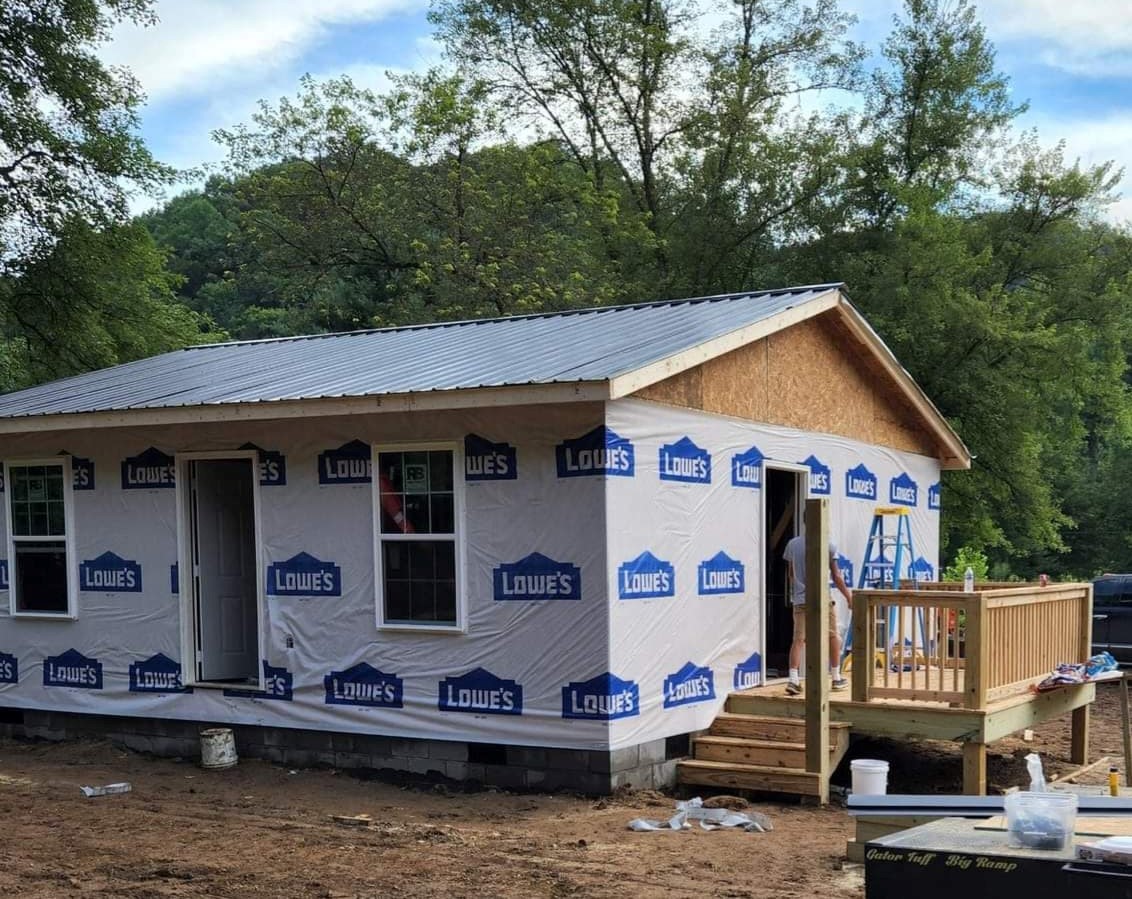
At FHLB Cincinnati, Corporate Social Responsibility (CSR) means doing our best to support our members and the communities they serve ethically, soundly and with our Core Values in mind.
In 2022, our support included an additional $3 million contribution to our Affordable Housing Program, a focus on diversity, equity and inclusion programs that emphasized employee education and wellbeing, and outreach events where employees and the FHLB gave back to our community together.
Seeing the full year of the FHLB team’s efforts highlighted in this report is inspiring--especially as these efforts grow more robust each year. I hope you too are as inspired as I am as you read our CSR Report.
Andrew S. Howell
President & CEO

About FHLB Cincinnati
The Federal Home Loan Bank of Cincinnati is a regional wholesale bank providing financial services for residential housing and economic development to member-stockholders in the FHLB System’s Fifth District of Kentucky, Ohio and Tennessee. Eligible stockholders include banks, thrifts, credit unions, insurance companies and community development financial institutions. We are one of 11 Federal Home Loan Banks nationwide, a system created by Congress in 1932 to support housing finance.
Mission
Provide members with reliable funding to support housing finance, affordable housing and community investment, and assist with their balance sheet management.
Purpose
Our team changes lives by building economic confidence and resilient, inclusive communities.
Vision
Be a vital partner helping members achieve business success and enhance communities.



Community Outreach
Alongside the 10 percent of net income we set aside for affordable housing, FHLB employees also support their local communities and give back to organizations that matter to them.
Charitable Giving Campaigns
Our 242 employees are committed to supporting the communities in which we live and work. We do this in a multitude of ways, including two charitable employee giving campaigns that benefit local organizations. The first campaign, ArtsWave, benefits over 150 projects and cultural organizations that connect Cincinnati through the arts. The second, our United Way campaign, supports the building block of economic mobility in our community. FHLB Cincinnati also makes other charitable contributions throughout the year to various organizations.
Employee Build
At FHLB Cincinnati, we demonstrate our commitment to community and housing by annually sending groups of employees to construct homes alongside our housing partners in the Fifth District.


Corporate Outreach
Through our Corporate Outreach Program, employees can nominate nonprofit organizations to receive grants to fund wellness, affordable housing, education and economic development initiatives.
 $10,000 went to the Samaritan Car Care Clinic. The Samaritan Car Clinic provides routine and other vehicle maintenance to those who cannot afford it.
$10,000 went to the Samaritan Car Care Clinic. The Samaritan Car Clinic provides routine and other vehicle maintenance to those who cannot afford it.- $3,000 sponsored Women in Banking conferences through the Kentucky Bankers Association and the Ohio Bankers League. The conferences focused on the enhancement and career growth of women in the banking industry.
- $2,500 helped support delivering essential services to seniors in need, providing them with meals in their own homes.
- $2,500 sponsored the Dan Beard Council of the Boy Scouts of America’s Annual Good Scout Award Luncheon.
- $1,700 helped FamiliesFORWARD’s Adopt-a-Child project. The donation was used to help provide gift bags during the winter holidays for 400 students in a local after-school program.
- $1,205 sponsored Habitat for Humanity of Greater Cincinnati’s Rock the Block where employees also volunteered to complete neighborhood beautification projects.
- $1,182 was donated in our partnership with Welcome House Inc. This program provided back-to-school packs for students in the new school year.
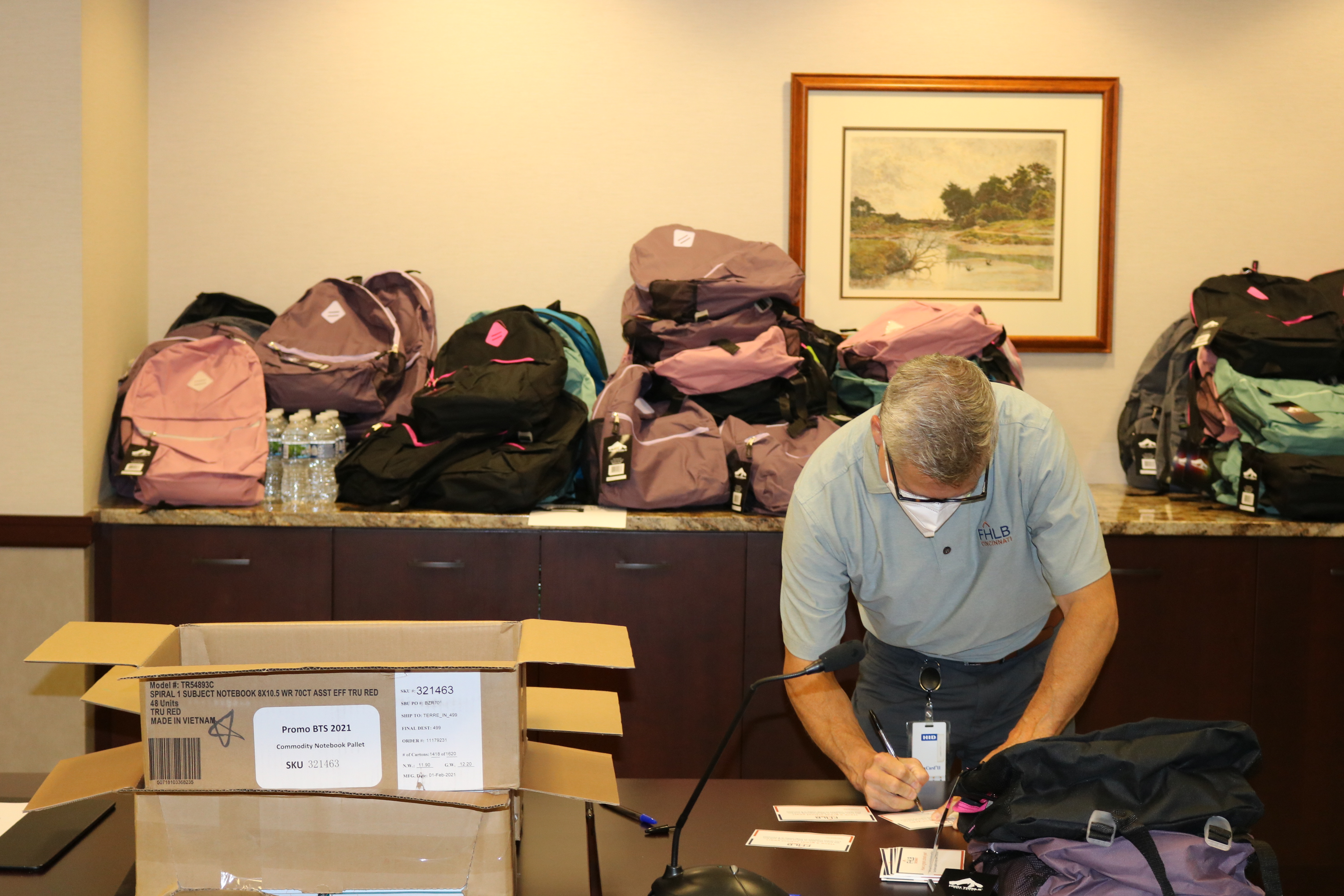
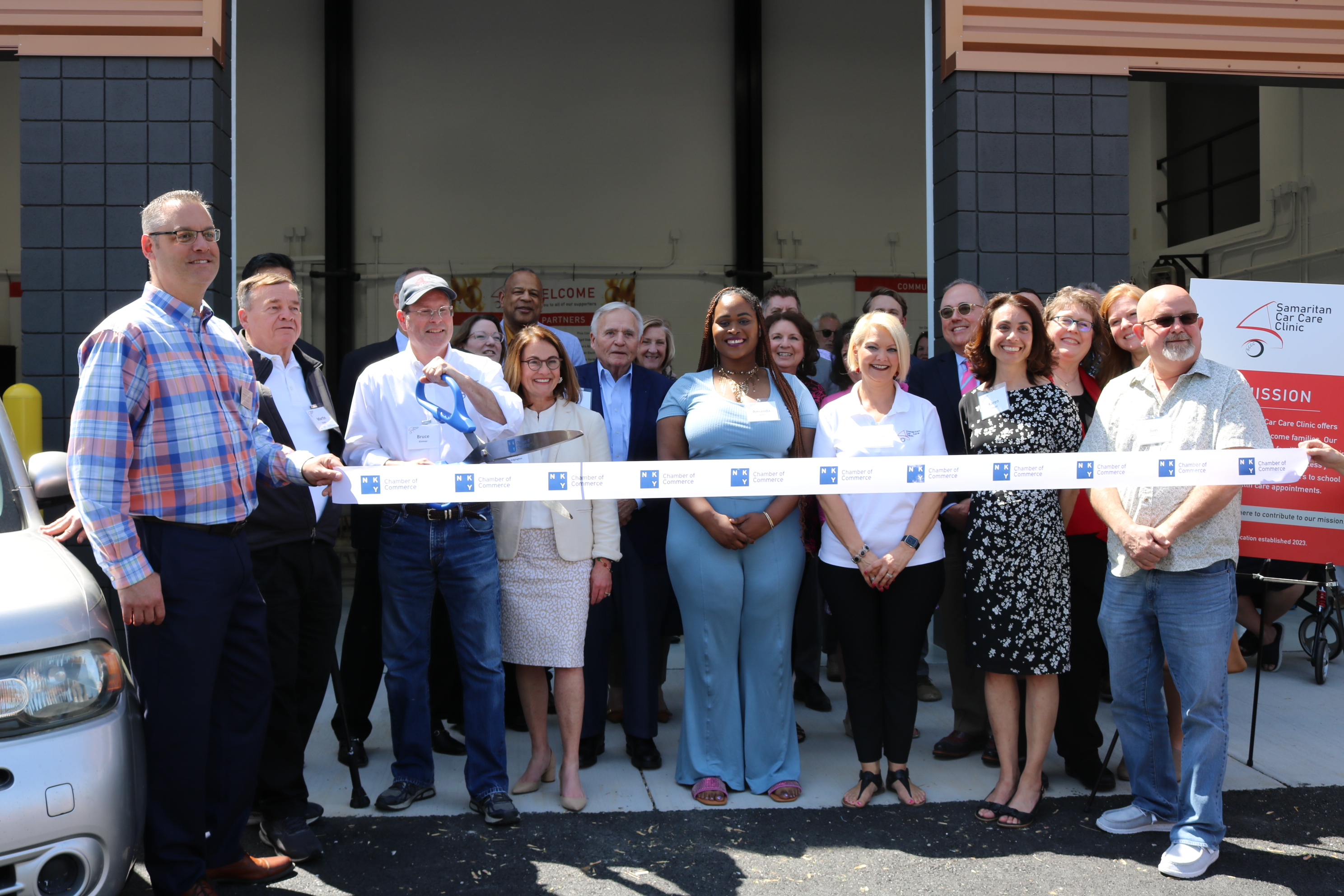

Diversity, Equity and Inclusion
The Bank is committed to diversity at all levels of our organization from the employees we hire to the programs, institutions and businesses we support. We encourage a climate of respect, openness and awareness that celebrates and values our differences. When you join our community, you are joining a team of people from diverse backgrounds who are dedicated to helping communities in the Fifth District and beyond prosper.
 Diverse and Inclusive Workforce
Diverse and Inclusive Workforce
In 2022, we increased the number of diverse new hires by strengthening our strategy to hire and retain diverse talent. As part of this effort, we enhanced existing and established new relationships with Historically Black Colleges and Universities (HBCUs) within our district to advance our commitment to provide equal opportunity and create pathways to success for graduating students. We also created a new position, Diversity, Equity and Inclusion (DEI) Data Analyst, to assist with collecting, organizing and maintaining data related to our DEI program. People of color (POC) represented 42% of this year’s new hires. In addition to increasing the number of diverse new hires, we made great strides in our goal to create a diverse group of leaders who will drive our future performance. When it comes to 2022 promotions, 16% were POC and 32% were women.
Allied in Action
We continued our commitment to prioritize inclusivity and equity. We believe that effectively building allyships involves embracing differences, challenging norms and committing to take action. In August, FHLB signed the Hamilton County Pay Equity Commitment and pledged to continue to take action to promote pay parity and career opportunities for all employees. The Bank also joined the 2022 Shine A Light campaign against antisemitism and affirmed our commitment to fight hatred, injustice and inequity in our communities—particularly when these acts of hatred are based in discrimination against race, religion, color, sexual orientation or national origin.
 Encouraging Awareness and Understanding
Encouraging Awareness and Understanding
This year we focused on strategies to boost employee engagement across the Bank. Our DEI department provided monthly employee updates on diverse holidays and observances, as well as local diversity events that employees were encouraged to participate in. Additional resources such as book suggestions, caregiver resources, articles and more are always available on our employee intranet. Monthly Microsoft Teams backgrounds were made and shared bank-wide to allow employees to show their support for different holidays and observances.
FHLB offered a number of DEI trainings for our employees and Board of Directors. We hosted sessions on “Moving from Inclusion to Belonging,” with a focus on how to shift from intent to impact, and a lunch and learn on allyship. We also participated in the FHLB System wide webinar entitled “A Conversation on Race,” which focused on Asian American and Pacific Islander Awareness. In 2022, the Board completed the Bank’s DEI Compliance eLearning training module that included resources for implementing inclusive language in day-to-day interactions. The Board is committed to making sure that they are in sync with the organization’s DEI mission.
Diverse Suppliers
The FHLB continued to make progress in improving our purchasing and procurement efforts. Due to efforts to engage diverse vendors for new opportunities, mainly in the areas of external consultants and staff augmentation, the allocation of diverse contracts grew in all areas of minority, women and disabled-owned businesses. In addition to continuing relationships with diverse suppliers used in prior years, we work to develop new relationships each year. Our recent membership with the Women’s Business Enterprise National Council, Inc. (WBENC) provided additional channels from which to source goods and services from diverse suppliers.
Employee Resource Groups
 The Bank had two employee resource groups that focused on volunteering, mentorship and sustainability throughout the year. One group, BEING FHLB, hosted BEING Connected events with the goal of removing silos and bringing employees together to build relationships and understanding of the culture of the Bank. Women Connected, the other employee resource group, offered numerous events and training opportunities for employees. They organized Women’s Week, which included installing carts with free hygiene products in women’s restrooms and a lunch and learn on “Breaking Your Own Barriers.” The group also participated in the “Advantage All: Achieving Gender Equality on the Global Stage” webinar hosted by JPMorgan. The program included a discussion with the U.S. Tennis Association and International Tennis Federation’s Katrina Adams, Stacey Allaster and David Haggerty.
The Bank had two employee resource groups that focused on volunteering, mentorship and sustainability throughout the year. One group, BEING FHLB, hosted BEING Connected events with the goal of removing silos and bringing employees together to build relationships and understanding of the culture of the Bank. Women Connected, the other employee resource group, offered numerous events and training opportunities for employees. They organized Women’s Week, which included installing carts with free hygiene products in women’s restrooms and a lunch and learn on “Breaking Your Own Barriers.” The group also participated in the “Advantage All: Achieving Gender Equality on the Global Stage” webinar hosted by JPMorgan. The program included a discussion with the U.S. Tennis Association and International Tennis Federation’s Katrina Adams, Stacey Allaster and David Haggerty.

Employee Life
Rooted in dependability, the FHLB has served our members and employees for the last 90 years. Over that time, our culture has shifted, embracing innovation to stay relevant in changing environments – and that focus on innovation remains core to our culture. There are many reasons why employees find FHLB to be a great place to build and grow a career.

![]() Financial Benefits
Financial Benefits
In addition to our competitive compensation, employees can expect a comprehensive benefits package that is focused on their financial and personal wellbeing. FHLB offers employees generous retirement savings options intended to help them prepare for the future. Employees also have the opportunity to earn an annual bonus through our incentive compensation plan.
Health Benefits![]() Beyond financial rewards, FHLB offers comprehensive health and dental insurance and keeps premiums low while contributing between $1,500 and $3,000 to employee Health Savings Accounts each year. FHLB recognizes the need of its employees to have periods of rest and relaxation away from the daily demands of work. Our paid time off program is competitive and gives employees the time they need to unwind and recharge.
Beyond financial rewards, FHLB offers comprehensive health and dental insurance and keeps premiums low while contributing between $1,500 and $3,000 to employee Health Savings Accounts each year. FHLB recognizes the need of its employees to have periods of rest and relaxation away from the daily demands of work. Our paid time off program is competitive and gives employees the time they need to unwind and recharge.
Work Flexibility![]() Workplace flexibility supports a number of FHLB’s goals related to recruitment and retention, business continuity needs, inclusiveness and well-being. Our flexible work arrangements provide employees more options for balancing the demands of their personal life and work life. Employees are eligible to work from home or other non-FHLB Cincinnati locations up to three days a week. On Wednesdays, referred to as Collaboration Day at the Bank, employees are requested to be in office for the purpose of in-person meetings, social gatherings or other team building opportunities.
Workplace flexibility supports a number of FHLB’s goals related to recruitment and retention, business continuity needs, inclusiveness and well-being. Our flexible work arrangements provide employees more options for balancing the demands of their personal life and work life. Employees are eligible to work from home or other non-FHLB Cincinnati locations up to three days a week. On Wednesdays, referred to as Collaboration Day at the Bank, employees are requested to be in office for the purpose of in-person meetings, social gatherings or other team building opportunities.
Continuing Education![]() Focused on professional growth? Employees may apply for educational assistance for graduate or undergraduate courses taken at an accredited college or university that are related to their job or career field. FHLB also supports professional development and reimburses eligible fees associated with certification courses and examinations. In 2022, fourteen employees took advantage of FHLB’s continuing education reimbursement.
Focused on professional growth? Employees may apply for educational assistance for graduate or undergraduate courses taken at an accredited college or university that are related to their job or career field. FHLB also supports professional development and reimburses eligible fees associated with certification courses and examinations. In 2022, fourteen employees took advantage of FHLB’s continuing education reimbursement.

Governance
In our work at FHLB Cincinnati, we hold each other accountable to the highest levels of integrity, honesty and ethical behavior. Strong corporate governance helps guide our operations at FHLB Cincinnati and ensures we continue to meet the highest ethical and legal standards in all we do. Our management structure, governance policies and corporate bylaws keep us on the right path and focused on doing business the right way.
Board of Directors![]() FHLB Cincinnati’s Board of Directors oversees management of a broad range of subjects—from strategic plans and capital structure to financial and risk management policies. The FHLB Board of Directors is comprised of 10 member director seats and seven independent directors, who are not affiliated with a member institution. Three of the independent directors have been designated by the Board as public interest directors, who have four or more years of experience representing consumer or community interests in banking services, credit needs, housing or consumer financial protections. The structure ensures a diversity in membership and strengthens the available expertise of the Board.
FHLB Cincinnati’s Board of Directors oversees management of a broad range of subjects—from strategic plans and capital structure to financial and risk management policies. The FHLB Board of Directors is comprised of 10 member director seats and seven independent directors, who are not affiliated with a member institution. Three of the independent directors have been designated by the Board as public interest directors, who have four or more years of experience representing consumer or community interests in banking services, credit needs, housing or consumer financial protections. The structure ensures a diversity in membership and strengthens the available expertise of the Board.
Currently, the FHLB has six member director seats from Ohio and two each from Kentucky and Tennessee. Approximately one-fourth of Board seats are up for election each year. Directors generally serve staggered four-year terms beginning January 1. The number of independent directors and the number of member directors for each state are determined annually by the Federal Housing Finance Agency.
Board Committees
The Board maintains seven standing committees all focused on specific areas essential to the continued success of the Bank. Those include:
- Audit
- Business & Operations
- Risk
- Governance
- Housing & Community Development
- Human Resources, Compensation & Inclusion
- Executive
![]() Affordable Housing Advisory Council
Affordable Housing Advisory Council
The Affordable Housing Advisory Council helps to set the direction for the FHLB’s affordable housing and community lending programs by advising the Board of Directors and management on affordable housing and economic development needs within the Fifth District. Advisory Council members are nominated by member institutions, sponsors and community-based organizations and ultimately appointed by the Board. Advisory Council members serve staggered three-year terms, and no member
may serve more than three consecutive terms. An exception applies to the state housing agency executives from each FHLB state who serve one three-year term on a rotating basis.

Environmental
FHLB Cincinnati keeps the environment in mind throughout our business practices—looking to shrink our ecological footprint whenever possible.
Recycling![]() FHLB Cincinnati encourages recycling in our office every day. Recycling receptacles are placed throughout our offices near copy facilities and other locations to make it easy for all employees to recycle. Current recyclable materials include:
FHLB Cincinnati encourages recycling in our office every day. Recycling receptacles are placed throughout our offices near copy facilities and other locations to make it easy for all employees to recycle. Current recyclable materials include:
- Cardboard
- Paper
- Aluminum
- Paper shredding (all sensitive materials are shredded and subsequently recycled)
FHLB Cincinnati also makes every effort to recycle in other ways when possible. This includes the recycling of data center components. Thousands of pounds of servers, racks, hard drives, printers and other electronic equipment have been saved from landfills through this effort.
Reducing![]() We make it easy for employees to reduce the amount of resources they are using in a number of ways:
We make it easy for employees to reduce the amount of resources they are using in a number of ways:
- Encouraging email correspondence over written
- Defaulting printer settings to two-sided pages
- Reusing packaging materials
- Turning off lights when not in use
- Donating furniture and usable equipment to help prevent adding to landfills
Since 2019, we have offered water bottle filling stations in all breakrooms and refrigeration areas within our office space. Employees are encouraged to use Bank-provided reusable cups for water. Paper cups are no longer easily accessible for employees, significantly reducing related waste.
Building Efficiencies![]() FHLB’s principal office is housed in Atrium Two, a LEED gold certified office building that must meet requirements across five performance categories – energy, water, transportation, waste and human experience. As a result, the building looks to:
FHLB’s principal office is housed in Atrium Two, a LEED gold certified office building that must meet requirements across five performance categories – energy, water, transportation, waste and human experience. As a result, the building looks to:
- Reduce contribution to global climate change
- Enhance individual human health
- Protect and restore water resources
- Protect and enhance biodiversity and ecosystem services
- Promote sustainable and regenerative material cycles
- Enhance community

Housing and Community Investment
Our programs are making a difference—from construction of affordable multi-family rental units to a home modification to accommodate a low-income homeowner’s disability, FHLB funds through our Housing and Community Investment programs are making a difference. FHLB plays an important role in supporting affordable housing and community development initiatives throughout the Fifth District states of Kentucky, Ohio and Tennessee. We offer a range of flexible programs to help our member financial institutions and housing partners build stronger communities.

Affordable Housing Program
Our Affordable Housing Program has helped build inclusive communities throughout the Fifth District and beyond since its inception in 1990. The program is a cornerstone of FHLB, with at least 10 percent of earnings designated toward affordable housing efforts. In 2022, we expanded these efforts with an additional $3 million voluntary contribution to the Affordable Housing Program.
These funds are typically disbursed through two programs, the competitive Affordable Housing Program offering and the Welcome Home Program. Welcome Home pairs our members with homebuyers to help them achieve the sometimes difficult goal of owning a home. The program provides $5,000 in down payment assistance to low- to moderate-income homebuyers who are often purchasing their first homes. Active duty military and veterans who meet income qualifications were eligible for $7,500 in grant assistance. For 2023, grant amounts have doubled to $10,000 and $15,000 respectively.
In total, the FHLB disbursed $2.6 million for down payment and closing cost assistance for 559 low- and moderate-income homebuyers through the Welcome Home Program in 2022. Welcome Home remains our most popular product, combining ease of use with immediate homeowner benefit. Since Welcome Home’s inception in 1998, the FHLB has disbursed $182.6 million to help some 37,399 families become homeowners.
In 2022, 36 members were awarded 48 grants totaling $12.1 million through the competitive Affordable Housing Program. These awards will finance 1,537 units of affordable owner-occupied and rental housing. Since the competitive Affordable Housing Program’s inception in 1990, the FHLB has awarded $631.8 million in subsidy to help fund 63,067 units of affordable housing, with a total development cost of $6.1 billion. Combined with the Welcome Home Program, the Affordable Housing Program has awarded over $841 million in subsidy to help fund more than 104,000 units of affordable housing.
Voluntary Programs
Our voluntary programs further demonstrate our commitment to housing and community investment. These programs help communities thrive while facing the issues affecting the Fifth District – housing stock quality and natural disasters.
The Carol M. Peterson Housing Fund provided up to $7,500 per homeowner to assist those with special needs, including those over age 60, with accessibility rehab or emergency repairs to their homes. For many, this means a dry home thanks to a new roof or central heat in their homes for the first time in years. Accessibility modifications often look like ramps for step-free entry into homes or new showers or baths that accommodate lower mobility needs. In 2022, the Board approved $1.0 million for the fund, and $916,862 was disbursed to assist 137 households. Since inception, the program has disbursed nearly $15.3 million to assist 2,639 households. For 2023, the amount available in this fund increased to $7 million and grant amounts increased to $15,000.
The Disaster Reconstruction Program is another voluntary program provided by FHLB. The program helps Fifth District families whose homes were damaged or destroyed by natural disasters. Homeowners in declared disaster areas can utilize $20,000 to help repair or rebuild homes, and displaced renters can qualify for $10,000 toward the purchase of a home. By year-end 2022, we had awarded over $6.8 million to 535 households whose homes were damaged or destroyed by state- or federally-declared natural disasters.

John Arthur Flats
Affordable housing and community development are an important part of our mission. John Arthur Flats, a new affordable senior housing development, is now open with help from FHLB Cincinnati’s Affordable Housing Program. The development is the first-ever designated LGBTQ-friendly senior housing development in Cincinnati. Located on Apple Street, it is named after the late John Montgomery Arthur, a Cincinnati native and husband of John Obergefel, the plaintiff in the Supreme Court case that legalized same-sex marriage nationwide.
Residents can enjoy access to an outdoor terrace, fitness center, community center, parking and laundry facilities. On-site supportive services provided by Pennrose Management Company, Equites Health and Caracole, Cincinnati’s nonprofit AIDS Service Organization, are also available. All units are priced to be affordable to households earning between 30-60% of the area’s median income. FHLB member Fifth Third Bank and project sponsor Pennrose were awarded a $523,772 grant to help construct the 57-unit apartment building located in Cincinnati’s Northside neighborhood.

Rebuilding Stronger Communities
The housing needs in our communities change and over the course of our history, FHLB Cincinnati has worked to ensure we remain a vital partner in building stronger communities no matter what those needs are. Rehabilitating homes in disrepair is one such need.
Building Stronger Communities is more than just a tagline for FHLB—it has been a keystone of how we operate. The following stories illustrate how our members and housing partners have helped us play an integral role in Rebuilding Stronger Communities.
Youngstown Neighborhood Development Corporation and Premier Bank
For Youngstown Neighborhood Development Corporation (YNDC) and FHLB Cincinnati member Premier Bank, rehabbing existing homes is a large part of their work together. The organizations received a $1 million Affordable Housing Program grant that was used to replace roofs or furnaces in over 74 homes in 2022.
“Rehab is a huge part of what we do. It makes a lot of sense financially to renovate these homes instead of new construction,” said Tiffany Sokol, Housing Director of YNDC. “Beyond the financial benefits, we want to keep the people who make up the fabric of Youngstown in their homes.”
There is a great need for housing rehab in Youngstown, Ohio, with over 1,000 occupied homes in need of repair. Thanks in part to their partnership with Premier Bank and FHLB Cincinnati, YNDC has rehabbed over 150 housing units for repair and completed more than 100 home repairs.
“Whenever we can leverage any one of the great options available to us and get them into the hands of those that need them, it strengthens our community and our partnership with the FHLB,” said Reginald Temple, Vice President, Director of Community Development at Premier Bank.
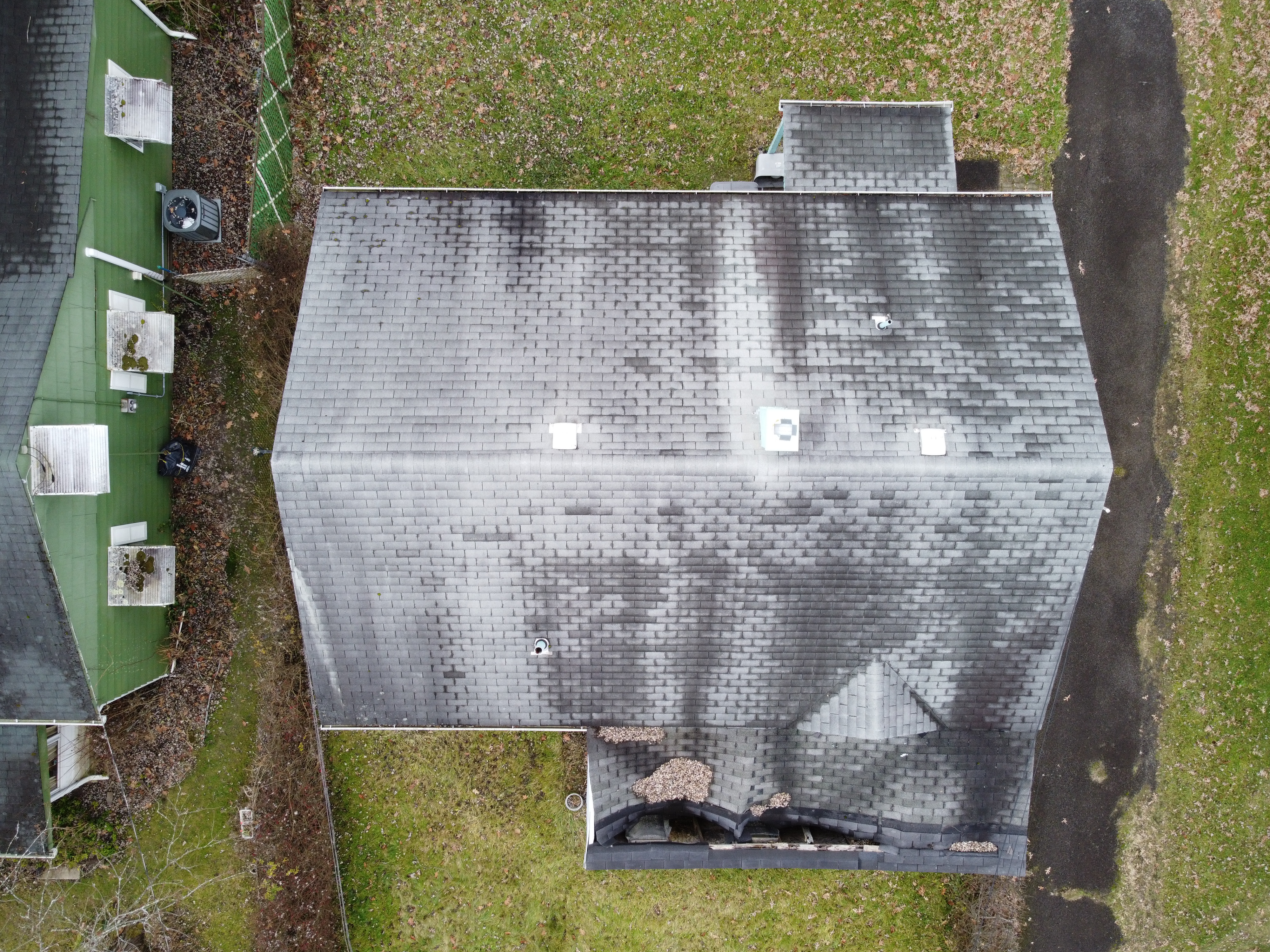

Knoxville Leadership Foundation and Home Federal Bank of Tennessee
Member Home Federal Bank of Tennessee has a long history of working with the Knoxville Leadership Foundation to secure funding from FHLB Cincinnati’s Carol M. Peterson Housing Fund (CMPHF) to support accessibility and emergency repairs for low-income special needs homeowners.
“Since 2010, we have assisted Knoxville Leadership Foundation in obtaining $609,747 in FHLB Cincinnati CMPHF funding for their Operation Backyard Program,” said Brenda Morrill, Home Federal Bank of Tennessee’s Assistant Vice President, Compliance & CRA Officer.
Funds awarded through the CMPHF have helped 118 low-to-moderate income individuals in the Knoxville community with much-needed ramp additions and roof replacements. One homeowner who benefited from this year’s funding has been in her home for 50 years, and another has lived in the same home all of their life.
“With this particular funding, 9 times out of 10 we are looking at how can we really keep someone in a home and allow them to age in place and not feel like they have been displaced,” said Jay Zartman, Senior Director of Knoxville Leadership Foundation’s Operation Backyard.
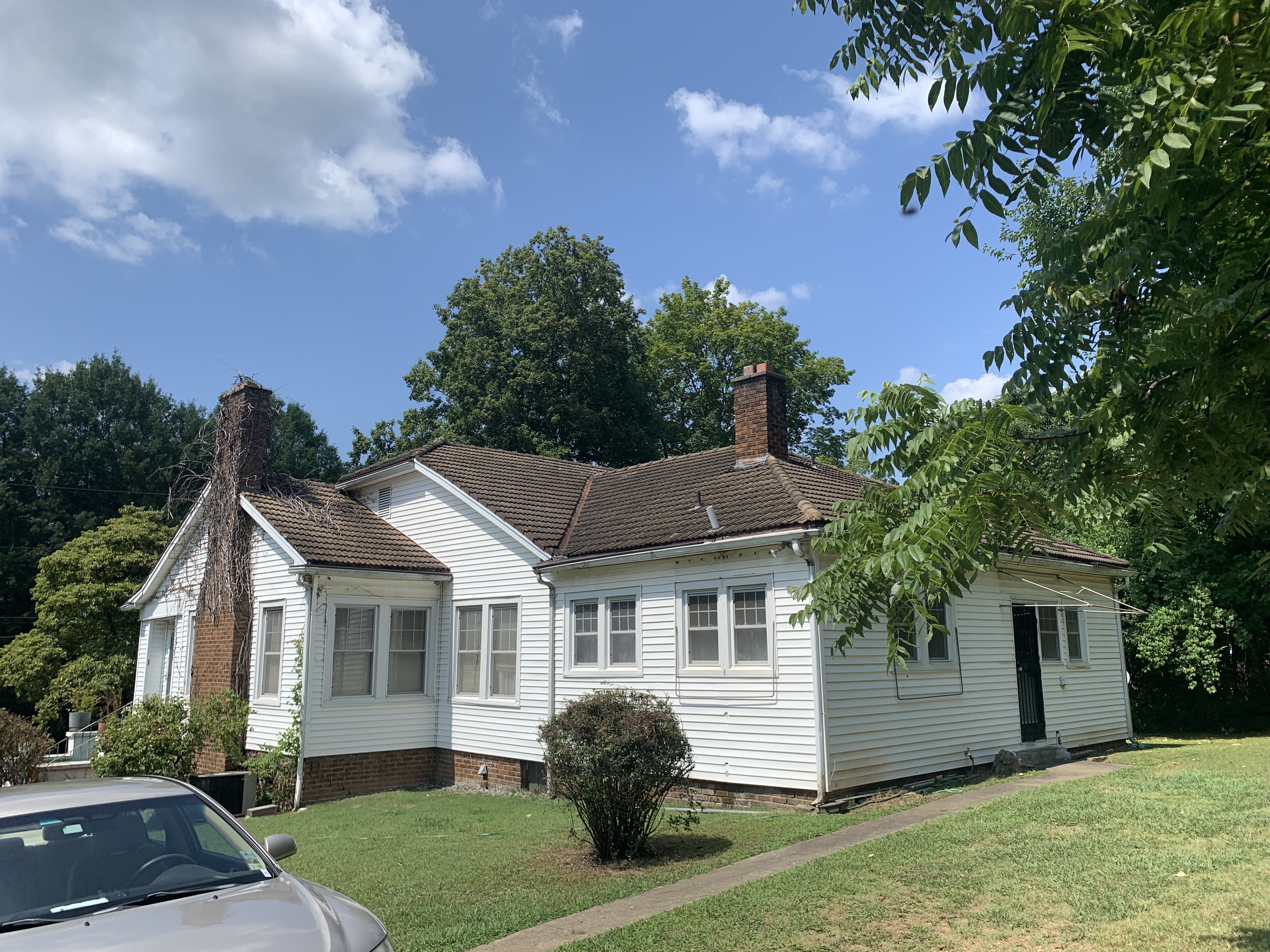

Partnership Housing Inc. and Farmers State Bank
First introduced in 2012, FHLB Cincinnati’s Disaster Reconstruction Program (DRP) helps members meet the needs of their communities affected by natural disasters. Member Farmers State Bank partnered with Partnership Housing Inc. to utilize the program to help residents rebuild after a series of devastating floods in Kentucky’s Owsley County.
To Cassie Hudson, Executive Director of Partnership Housing Inc. and FHLB Affordable Housing Advisory Council member, rebuilding after the floods was like piecing together a puzzle. “I start with one house at a time and try to complete the puzzle. And DRP funds are a large piece of the puzzle,” said Hudson.
The county was hit by two floods in less than a two-year span, one in December 2020 and another in July 2022. FHLB Cincinnati awarded Farmers State Bank and Partnership Housing Inc. $64,040 to benefit four families affected by the floods. One individual, a retired Head Start educator, did not have the necessary funds to replace the HVAC system for her home.
“This was the only piece of the puzzle left that I needed to be able to have her home completely redone,” said Hudson. “That’s where I took the DRP funds, and I was able to complete her rehabilitation for her.”
